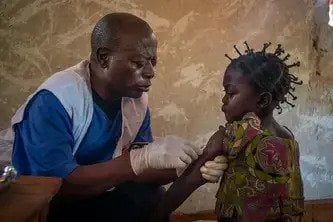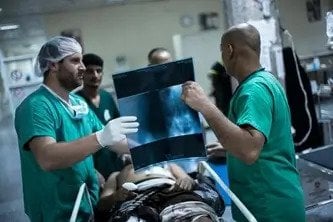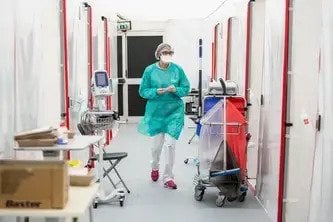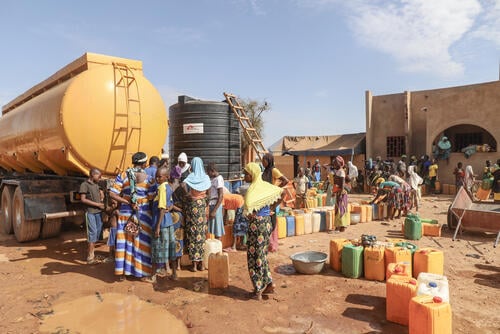Living in a country plagued by armed groups, droughts, and political instability, many people in Burkina Faso struggle to access essential healthcare services and necessities. More than 2 million people are estimated to be internally displaced by violence, and in the Sahel, Est, and Boucle du Mouhoun regions of the country, entire towns are living under blockade by non-state armed groups.
We provide a range of services, all free of cost, for displaced and host communities in Burkina Faso across seven regions of the country. These include clean water distribution, sexual and reproductive healthcare, malaria treatment, and care for children with malnutrition. Our teams also respond to disease outbreaks, like 2023’s dengue fever outbreak in Hauts-Bassins region.
Humanitarian and medical activities are not spared from violence in the country. In 2023, two of our colleagues were killed while travelling in an MSF-marked vehicle in Tougan. Ongoing insecurity, and even targeted violence at health facilities, reduces people’s access to the services they desperately need. We are committed to providing assistance to people across Burkina Faso, but at times have had to suspend our activities to prioritise the safety of our staff.
Our activities in 2023 in Burkina Faso
Data and information from the International Activity Report 2023.
1,173
1,173
31M€
31M
1995
1995
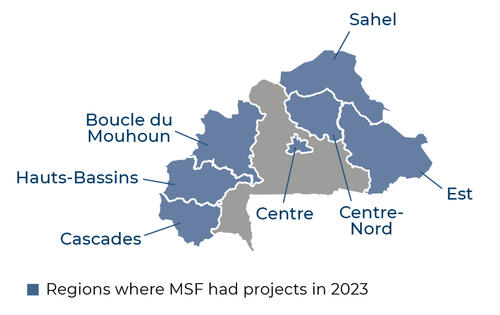

109.59M
109.59M
1,020,100
1,020,1
374,300
374,3

42,300
42,3
- Try a different country, year, format, or topic.
- Clear one or more filters
